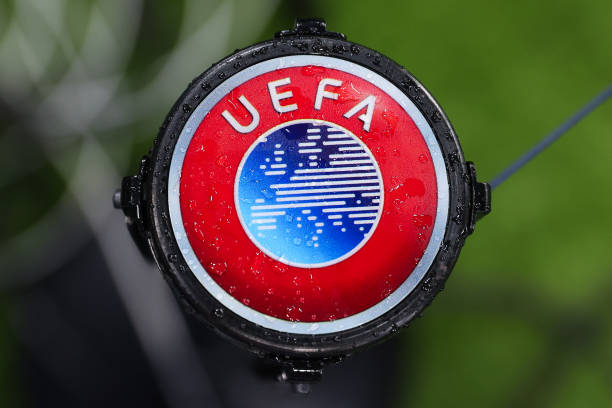
How UEFA Coefficients have Impacted UK Teams in Europe: European football has always been a battleground for clubs from the UK, with teams from England, Scotland, Wales, and Northern Ireland competing for continental glory. However, success in UEFA competitions isn’t just determined by on-field performance—UEFA coefficients play a crucial role in shaping the fate of UK clubs.
These rankings influence qualification spots, seedings, and even financial rewards, impacting how UK teams perform in the Champions League, Europa League, and Europa Conference League. In this article, we explore how UEFA coefficients have impacted UK teams in Europe, breaking down their effects on league rankings, club performances, and future prospects.
What Are UEFA Coefficients?
Before diving into their impact, let’s define UEFA coefficients. These rankings determine how many teams from each country qualify for UEFA competitions and influence seedings in the Champions League, Europa League, and Europa Conference League.
There are two types of UEFA coefficients:
- Country Coefficients – Based on the performances of clubs from a specific nation over five seasons. Determines the number of European qualification spots a league receives.
- Club Coefficients – Individual rankings for clubs, affecting seeding in European draws. Higher-ranked teams avoid tougher opponents in early rounds.

Now, let’s examine the five crucial ways UEFA coefficients have impacted UK teams in European football.
1. England’s Premier League Has Benefited the Most
Thanks to consistently strong performances in Europe, England has dominated the UEFA country coefficient rankings.
- Since the late 1990s, English clubs have performed well in the Champions League and Europa League, earning more coefficient points.
- This has secured the Premier League four guaranteed UCL group-stage spots, providing stability and financial gains for clubs.
- The success of clubs like Manchester City, Liverpool, and Chelsea has helped England maintain a high ranking, ensuring English teams consistently compete at the top level.
✅ Impact: More Premier League teams qualify for Europe, giving them a greater chance of success and financial rewards.
2. Scottish Clubs Have Struggled Due to Coefficient Drops
While England has benefited, Scotland’s UEFA coefficient has fluctuated dramatically over the years.
- In the early 2000s, Scotland had two Champions League spots thanks to Rangers and Celtic’s strong performances.
- However, after poor results in Europe, Scotland lost its second UCL qualification spot, forcing teams into tougher qualification rounds.
- Recent improvements from Celtic and Rangers (e.g., Rangers’ 2022 Europa League final appearance) have boosted Scotland’s ranking, helping regain automatic group-stage places in Europe.

❌ Impact: Scottish teams often start in early qualification rounds, making it harder to reach the UCL group stage.
3. Wales and Northern Ireland Face a Tougher Path in Europe
For clubs from Wales and Northern Ireland, UEFA coefficients have made European qualification an uphill battle.
- Since their domestic leagues are ranked lower in UEFA’s country coefficients, teams from Wales (e.g., The New Saints) and Northern Ireland (e.g., Linfield FC) must start in the very early qualification rounds.
- These clubs rarely progress far in UEFA tournaments due to the tougher draws and financial disadvantages compared to wealthier leagues.
❌ Impact: Welsh and Northern Irish clubs have minimal chances of reaching the group stages of UEFA competitions.
4. English Clubs Benefit from Higher Seeding in European Draws
Club coefficients directly influence seeding in Champions League, Europa League, and Conference League draws. Thanks to historical success, English teams usually enter as top seeds.
- Teams like Manchester City, Liverpool, and Chelsea consistently earn high club coefficient rankings, allowing them to avoid other top teams in the early rounds.
- This gives English clubs a greater chance of progressing deep into the competition, securing more UEFA prize money.
- In contrast, Scottish, Welsh, and Northern Irish clubs often receive tougher draws due to lower rankings.
✅ Impact: Higher-ranked English clubs get easier group-stage draws, increasing their chances of European success.
5. The Rise of the Europa Conference League Has Helped Smaller UK Clubs
In 2021, UEFA introduced the Europa Conference League (UECL), offering smaller clubs a better chance of competing in Europe.
- Scottish teams like Hearts, Hibernian, and Aberdeen have benefited, gaining valuable European experience and increasing Scotland’s coefficient.
- English teams outside the ‘Big Six’, like West Ham and Aston Villa, have used the UECL to build their reputation in Europe.
- Even clubs from Wales and Northern Ireland now have a slightly better path to European group-stage football.

✅ Impact: More opportunities for mid-table English and Scottish clubs to compete and improve national coefficients.
What Does the Future Hold for UK Teams in Europe?
Looking ahead, UEFA coefficients will continue to shape UK football. Key trends include:
- England’s continued dominance – Premier League clubs are set to retain four automatic UCL spots, possibly increasing to five with UEFA’s new format.
- Scotland’s resurgence – Rangers and Celtic must maintain strong performances to ensure Scotland keeps direct group-stage spots.
- A tougher road for Welsh and Northern Irish clubs – Without major investment, teams from these nations will struggle in UEFA competitions.
- Impact of the UEFA Champions League format change – From 2024-25, UEFA will introduce a 36-team ‘Swiss model’, which could help mid-table Premier League teams earn more European places.
SUGGESTED FOR YOU
FA Cup History –The 10 Most Iconic Moments in Unforgettable Football Drama
Final Thoughts
UEFA coefficients have had a profound impact on UK teams in Europe—determining qualification spots, influencing draws, and shaping the financial future of clubs. While English teams have largely benefited, Scottish, Welsh, and Northern Irish clubs face ongoing struggles.
As UEFA continues to tweak its ranking system and tournament formats, UK teams must adapt and perform in Europe to maintain their competitive edge.
💬 What do you think about UEFA coefficients? Have they helped or hurt UK football? Let us know in the comments!









